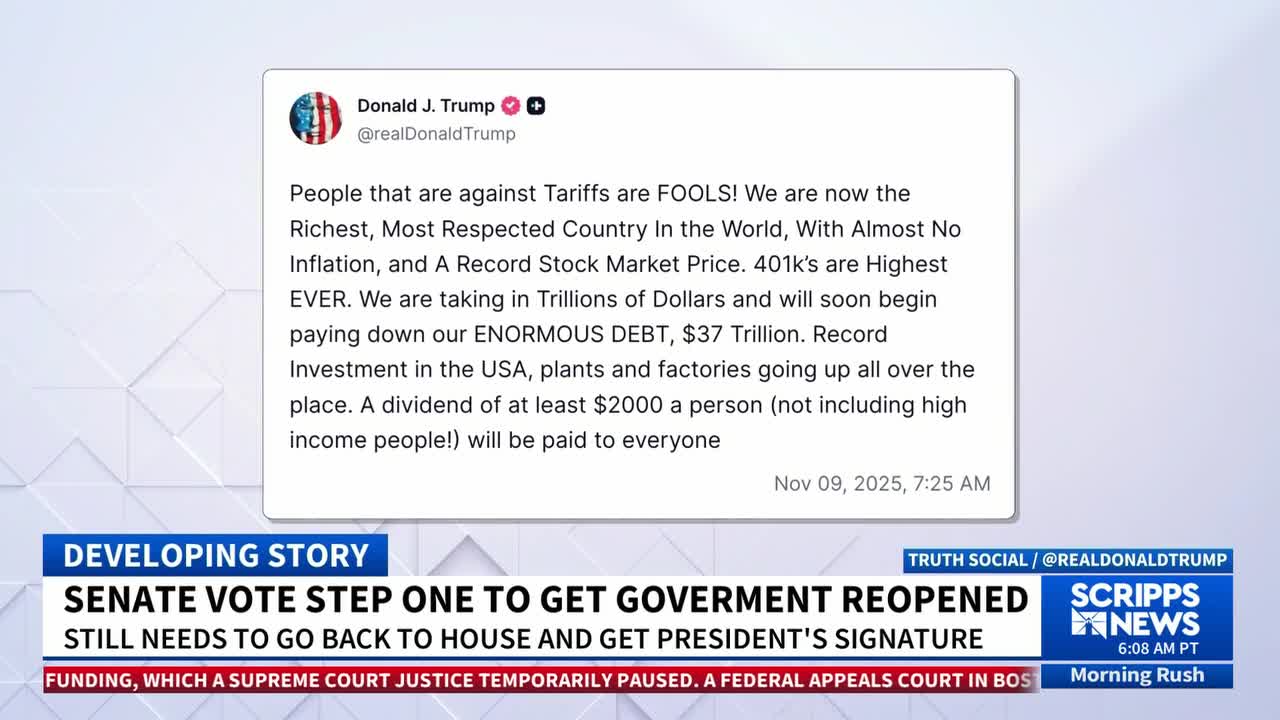Citing the successful nature of his tariffs imposed on foreign trade partners, U.S. President Donald Trump said Sunday the revenue raised by those import taxes will be used to pay down the national debt, invest in the U.S., and send direct payments to Americans.
"People that are against Tariffs are FOOLS!" the president wrote on his Truth Social platform. "We are now the Richest, Most Respected Country In the World, With Almost No Inflation, and A Record Stock Market Price. 401k’s are Highest EVER."
ADDITIONAL REPORTING | What happens to revenue brought in by Trump's tariffs?
"We are taking in Trillions of Dollars and will soon begin paying down our ENORMOUS DEBT, $37 Trillion," President Trump added. "Record investment in the USA, plants and factories going up all over the place. A dividend of at least $2000 a person (not including high income people!) will be paid to everyone."
According to a September report from the Treasury Department, a total of $195 billion in customs duties were brought in during the first three quarters of the fiscal year. But since President Trump imposed his sweeping tariff agenda earlier this year, some companies have passed on tariff costs to consumers.
This also isn't the first time someone has proposed the idea of directing tariff revenue back to American citizens who face rising costs. Earlier this year, Sen. Josh Hawley (R-Mo.) introduced a bill titled the American Worker Rebate Act, also advocating for a share of the record tariff revenue to go directly to the American people.
RELATED STORY | Supreme Court appears skeptical of Trump’s use of emergency powers for tariffs
Hawley's proposal suggests that $600 per adult and child should be deposited by the Treasury Department into qualifying bank accounts. To be eligible, individuals must earn under $75,000 per year, and couples filing jointly must make under $150,000. Those with higher incomes would receive a reduced payout.
However, the bill has stalled, and with the federal government shutdown stretching into day 40 on Sunday, any action from Congress is unlikely until lawmakers can agree on a proposal to end the current impasse.




